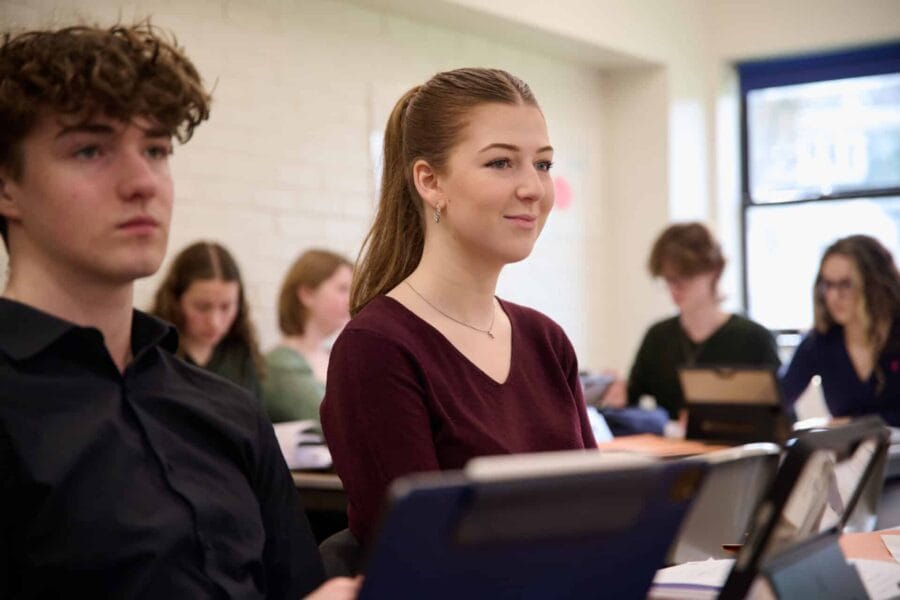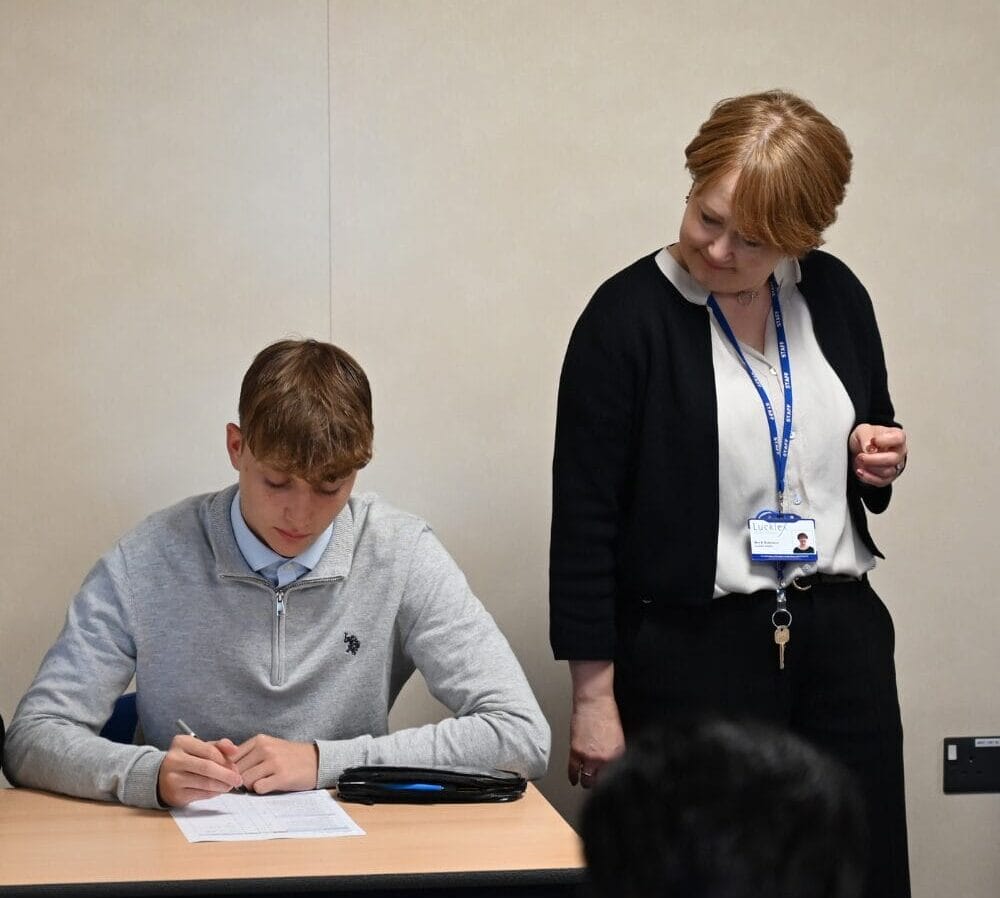
STUDYING A LEVELS AT LUCKLEY SIXTH FORM
With a modern, vibrant Sixth Form study area, a dedicated and highly qualified team of teachers and an impressive record of securing first choice university places it is hardly surprising that the Sixth Form at Luckley is attracting more and more students from other schools.
We pride ourselves on specialist, small-group teaching, with one-to-one support from tutors. You will be given the freedom to stretch yourself academically while learning to use time responsibly, just as you will need to do at university or in the workplace.
We offer over 20 subject choices at A Level and details can be found on the Subjects section of the website. You can choose from a variety of options, following a detailed discussion with the Head of Sixth Form to assist in your decision. Most students will follow a three A Level programme plus an EPQ.
Discover
THE EXTENDED PROJECT QUALIFICATION (EPQ)
The EPQ allows students to embark on a largely self-directed and self-motivated project. You will choose a topic, then plan, research and develop your idea. Creativity and curiosity is encouraged. A project topic can be directly related to your main study programme, looking further from the set specification, or it can be something totally unrelated to your A Level choices. The finished product may take the form of:
• a research-based written report
• a production (e.g. a charity event, fashion show or sports event etc)
• an artefact (e.g. a piece of art, computer game, realised design etc).

Study Skills Programme
The transition to A Level study can be a daunting one for many students and our Sixth Form study skills course promotes a range of techniques that are instrumental in developing students’ academic and independent learning skills. This bespoke course guides students to use their time productively and to set up effective academic behaviours and habits. We focus mainly on ‘efficient effort’, i.e. tasks which maximise the returns on the time students invest, thereby engendering confidence and self-sufficiency. By learning to interpret critical feedback as a way of improving, students are encouraged to develop academic buoyancy with a strong belief that they can succeed, meet their goals, and take control of their future.
Key areas covered by the course would typically include:
- Goal setting
- Resource organisation
- Effective note making
- Revision techniques
- Exam preparation
- Utilising feedback
